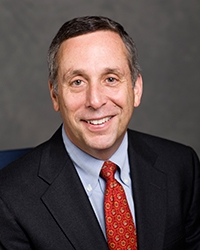
Lawrence Bacow, chair of the external review panel. (Photo courtesy of Lawrence Bacow)
The College has implemented or is working on every item outlined in the Moving Dartmouth Forward (MDF) plan, says an outside review panel appointed to monitor the progress of work to reduce extreme behaviors and promote inclusivity on campus.
Panel members sent their first report to Dartmouth’s board of trustees for review at the board’s meeting on Nov. 6 and 7.
“We are impressed by Dartmouth’s efforts to address a set of issues that affect almost every college in the nation,” says Lawrence Bacow, president emeritus of Tufts University and chair of the five-member committee. “While it is still early in the game, it appears that MDF is already making a difference. Other institutions should be able to learn from the good work being done by the Dartmouth community.”
Read More
Moving Dartmouth Forward Initiative Passes Milestones
The report focuses on the College’s progress to implement programs as part of MDF, but says that it is too early to gauge the work’s impact.
“The administration has made admirable progress towards the stated goals. However, we note that full implementation will require continued participation by others, including students and faculty. The Review Panel knows that the entire Dartmouth community shares our commitment to move Dartmouth forward. We encourage all elements of the College community to do their parts to ensure that that this important initiative is successful,” the report says.
Most of the 10-page report reviews implementation of MDF initiates and is divided into sections that mirror the MDF plan. The sections are: Transform Residential Life, Promote a Safer and Healthier Campus, Clarify and Strengthen Expectations of Individuals and Student Organizations, Strengthen Academic Rigor While Enhancing Learning Outside the Classroom, and Accountability.
Of the 21 initiatives reviewed, only one, creation of an online sexual consent manual, is behind schedule. The report notes that a draft of the manual, which was to be finished this past summer, is now in the commenting phase. The goal of the manual is to reduce ambiguity about what types of behavior are acceptable in sexual situations.
The report says that work is continuing on eight initiatives, including prohibition of pledge or probationary periods for new members of organizations on campus; surveying community members about the climate on campus; and requiring all Greek houses to have a male and female faculty or staff sponsor.
Six other initiatives are ongoing projects that generally have no deadlines, the report says. These include the exploration of new avenues for attracting and supporting the most talented high school students, regardless of their economic status; development of a mandatory four-year sexual violence and education program; and increasing the presence of faculty and other adults in the lives of students.
And, the report says, work has been completed on six initiatives, including the prohibition of possession or consumption of hard alcohol by undergraduates and by College-recognized organizations; creation of a code of conduct to be signed by every student enrolling at Dartmouth; commitment of $1 million to support social, academic, and intramural programming; and development of a College-specific smartphone safety app.
The complete report is available on the MDF website.
In addition to panel chair, Bacow, who is currently the inaugural leader-in-residence at the Harvard University Kennedy School’s Center for Public Leadership, committee members are Deborah Golder, associate vice provost and dean of residential education at Stanford University; Ralph Hingson, director of the division of epidemiology and prevention research at the National Institute on Alcohol Abuse and Alcoholism; Malcolm Leverett ’14, an analyst with Vanguard Group Inc.; and Rachel Siegel ’12, a private law fellow at Harvard Law School.
